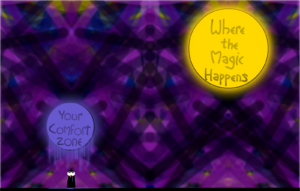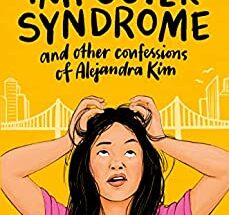
© 2014 Zippy the Wonderslug. Licensed under CC-BY.
I was sitting on a bare mattress thinking about Oreos when the call came in.
“Oh hai,” the agent dude said. “I’d like to represent you.”
“Cool,” I said back. “Thanks for that.”
And then we pretty much hung up and I started thinking about Oreos again.
That first night, I slept like my usual self. But my second night, I suddenly couldn’t do it at all. It was like my disbelief got stuck on loop: “I don’t feel any different. Am I supposed to feel different? If I don’t feel different, then that must mean it never happened, and therefore there’s nothing to get excited over.”
I’d realized that I’d not only gotten an agent, but a great one. Like, my dream agent. And that just couldn’t be true.
Me 1: He probably got me confused with somebody else. Or maybe I grossly misunderstood him and now I’ve embarrassed myself horribly because I already told my closest friends.
Me 2: Yeah, probably.
Me 3: I disagree.
Me 4: Can we play video games now?
Me 5: Tuck your foot back in or monsters will eat it.
As I continued to look up at the dark ceiling, I began to realize how this wasn’t, in fact, a new response system for me toward my writing. When I’d received positive feedback from friends and beta readers, I just assumed they were being nice. When I got requests for partials and fulls from agents, I figured the writing was so bad that they felt like they’d be kicking a puppy if they didn’t at least humor me. When I got accepted into Grub Street’s Novel Incubator Program, I concluded they must’ve only received ten applicants that year.
The pattern continued even after I graduated the program. When I was schmoozing at Grub Street’s Muse and the Marketplace, I decided the agents who asked me about my book were just being polite or saw me as a trend. When they started getting back to me after the fulls, I figured…I dunno. Something self-deprecating. You get the point.
Everything was always decidedly false, insincere, or something I hadn’t earned or deserved. And if it was something I had earned or deserved, then that just meant it couldn’t be a worthwhile thing because the recipient was, you know, me.
I guess I’d gotten it in my head that landing an agent would finally blow away all the self-doubt I had as a writer. And when that didn’t happen, I concluded that something must be terribly, terribly wrong with the agent scenario itself.
It finally dawned on me that Imposter Syndrome doesn’t ever simply go away. Not on its own. Not by a magical event that would somehow suddenly convince you that you’re worthwhile. Not in a field that’s been improperly marked with the raw talent of nonexistent lone geniuses since the dawn of literacy.
Just about everybody in the field seems to suffer from some level of Imposter Syndrome. I learned that while watching my peers work with publishing houses and go on tour. You can see a project from beginning to end and still be convinced it sucks major. No amount of 5-star reviews, sold-out prints, or million-dollar checks will convince you otherwise. As the anonymous quote goes, “You write so beautifully. The inside of your mind must be a terrible place.”
After finally falling asleep that second night, I’ve decided to start going by the wisdom of Luvvie: “Even if I happen to be in the room by accident, and by no doing of my own, I AM IN THAT ROOM. It is no longer an accident. How do I make it intentional and purposeful? Well, I better learn from the best then. I better walk away from that room inspired, with a resolve to be a more superior version of myself. So next time I AM in the room, I feel at home in it.”
The moral of the story is I nabbed that offer pretty soon after that second night. Because if nothing else, even I know I worked hard to get to this point. And while I may not understand what it is my now-agent sees in me, I’d like to start making it a reality best I can.




1 comment